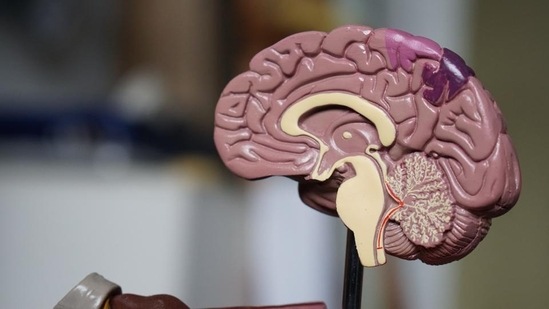How fasting affects neurons in brain: Research
Going further, the team demonstrated that the presence of these nutrients is sensed by the DEPDC5 protein. When they knocked out DEPDC5 in the brain, mTOR activity was not reduced and fasting no longer protected the mice against seizures.
Calorie restriction has long been linked to fewer seizures in people with epilepsy. Novel research from Boston Children's Hospital helps to explain how fasting affects neurons in the brain and may pave the door for new treatments that do not require fasting or restrictive diets.

The findings of the study were published in the journal Cell Reports.
"This study is the first step in understanding how dietary therapies for epilepsy work," says first author Christopher J. Yuskaitis, MD, PhD, a neurologist with the Epilepsy Center and Epilepsy Genetics Program at Boston Children's Hospital. "The mechanisms have until now been completely unknown."
ALSO READ: Intermittent fasting, keto or high protein, which diet plan will work for you?
DEPDC5, mTOR, and fasting
To connect the dots between diet and seizures, the researchers began with existing knowledge. They knew that the well-known mTOR cellular pathway is involved in many neurological disorders and had shown previously that over-activation of this pathway in neurons increases susceptibility to seizures. Studies by others had shown that mTORC activity is inhibited by acute fasting, though these studies didn't look at the brain.
Finally, Yuskaitis and colleagues knew that signaling by a protein called DEPDC5 acts as a brake on the mTOR pathway. That was intriguing, since mutations in the DEPDC5 gene have recently been found in many people with epilepsy. DEPDC5 mutations have been linked to focal epilepsy, infantile spasms, and sudden death in children.
"When we used an animal model that knocks out DEPDC5 specifically in the brain, we found that we could reduce seizures by using an mTOR inhibitor," says Yuskaitis. "That gave us the idea to explore the connection between DEPDC5, mTOR, and fasting."
Amino acid sensing
In the new study, they showed in a mouse seizure model that mTOR signaling was reduced in the brain after fasting. Additional studies of cultured rat neurons in a dish suggest that this fasting effect is primarily driven by the lack of three amino acids (leucine, arginine, and glutamine).
Going further, the team demonstrated that the presence of these nutrients is sensed by the DEPDC5 protein. When they knocked out DEPDC5 in the brain, mTOR activity was not reduced and fasting no longer protected the mice against seizures.
"Amino acid sensing seems to be critical for the beneficial effects of fasting on seizures," says Yuskaitis. "This suggests that patients with DEPDC5 mutations can't sense the loss of amino acids and may not benefit from dietary manipulation. But patients who don't have DEPDC5 mutations may benefit from a targeted dietary strategy."
This could take the form of diets with lower levels of the three amino acids, or medications or supplements that block absorption of those amino acids, he adds.
Next step: Ketogenic diet
This study is only a first step. Yuskaitis and colleagues now want to try diets in animal models that eliminate specific amino acids and observe the effects on seizures. They also want to explore how the ketogenic diet, a popular approach to treating epilepsy, helps curb seizures. No one currently knows why this low-carbohydrate, high-fat diet works.
"We're hoping this will hope us uncover additional dietary-based therapies other than ketogenic diet, which is sometimes difficult to follow long term due to side effects," says Yuskaitis.
Such work may also provide a new lens on neurologic disorders overall.
"Using these rare genetic disorders, we are starting to gain fundamental insights into the role of nutrients in brain function," says senior investigator Mustafa Sahin, MD, PhD, managing director of the Rosamund Stone Zander Translational Neuroscience Center at Boston Children's. "Findings from these rare disorders may open doors for better treatments of epilepsy in general."
Catch your daily dose of Fashion, Health, Festivals, Travel, Relationship, Recipe and all the other Latest Lifestyle News on Hindustan Times Website and APPs.



